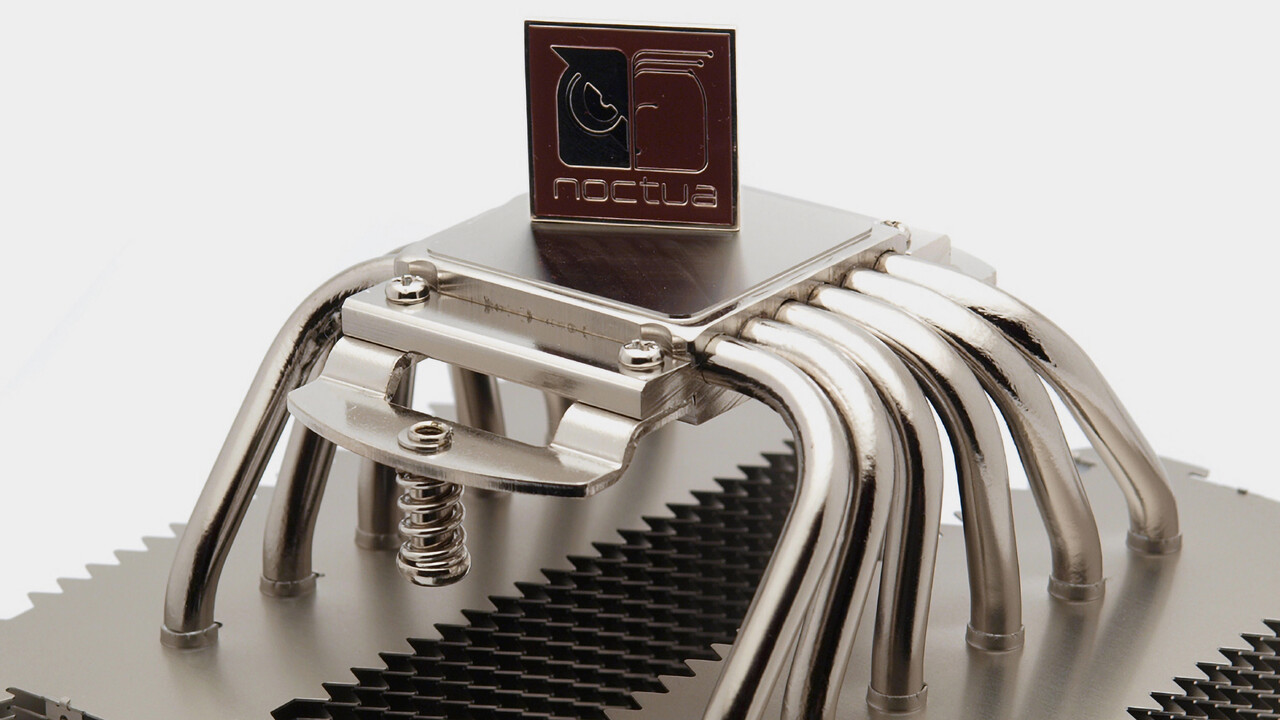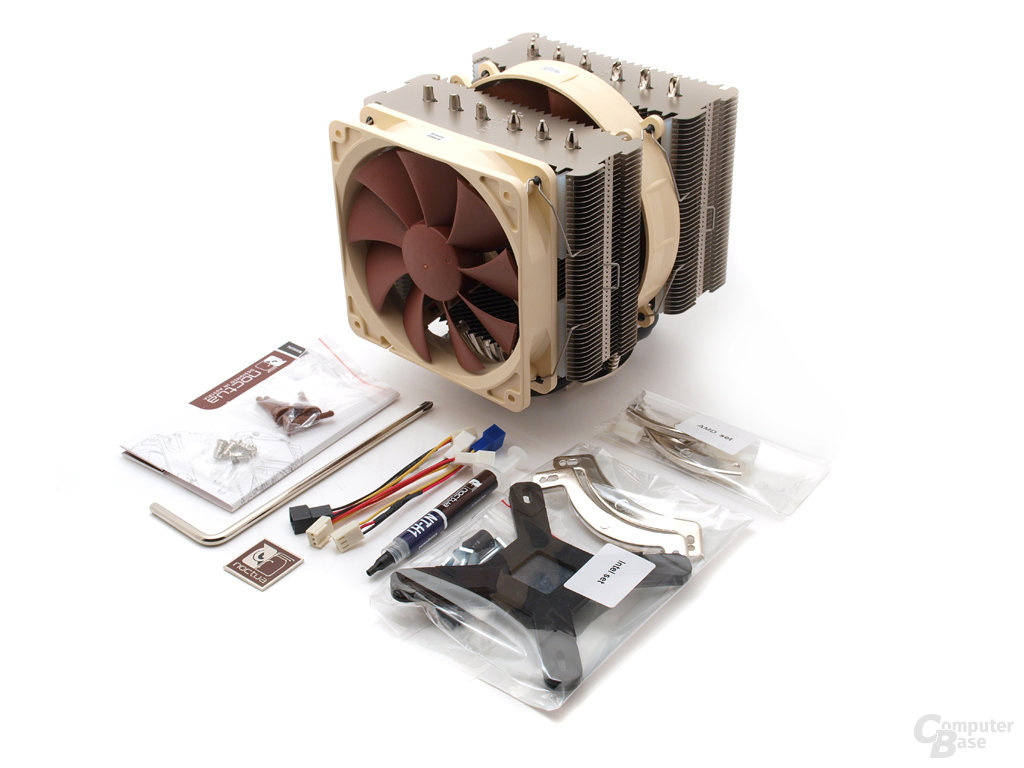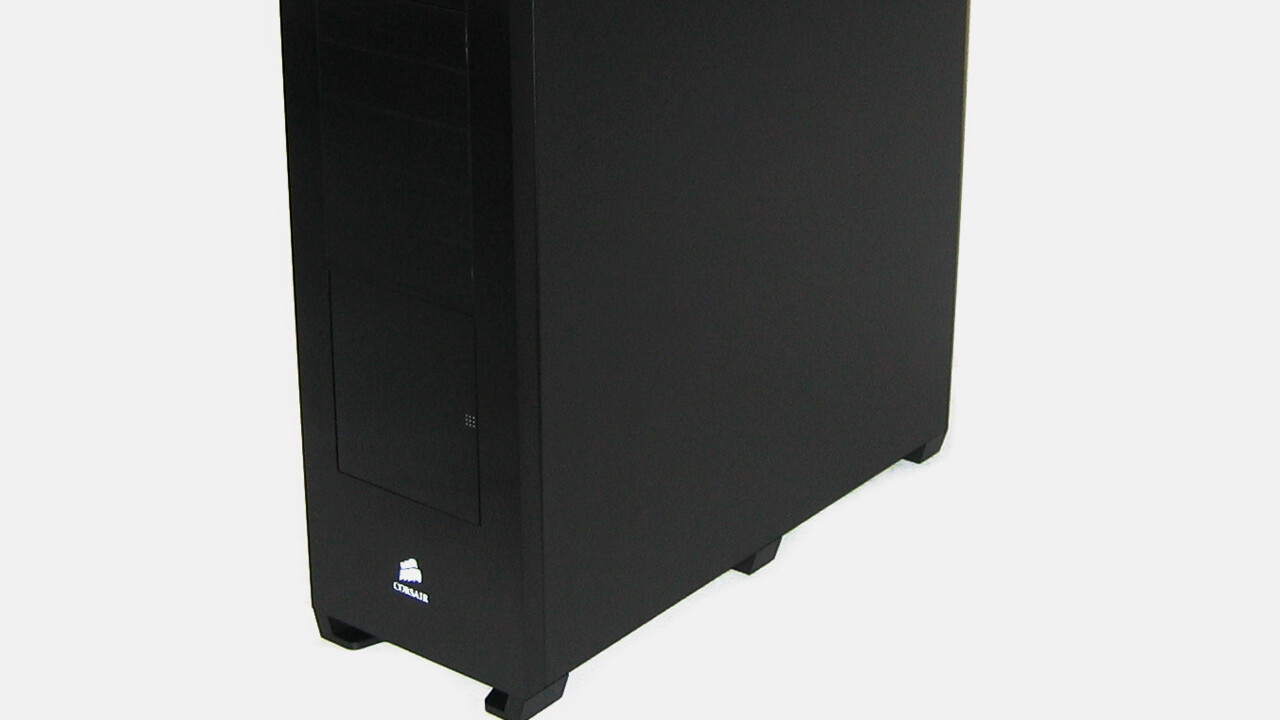In the test 15 years ago: Noctua’s NH-D14 was the ultimate CPU air cooler 98 comments

The Noctua NH-D14 (test) propelled the manufacturer to the top 15 years ago and the CPU cooler is still legendary today. With brutal performance, excellent workmanship and a successful fan, the manufacturer has kept its promises in all areas.
A car from Austria
With the NH-D14, Noctua did not do things by halves. The fanless heat sink measured 130 × 140 × 160 mm (W × D × H) and weighed 900 g. The dimensions increased to 158 × 140 × 160 mm (W × D × H) with the fans installed, while the weight, including the NF-P14 and NF-P12 fans, was 1,240 g. The huge heat sink was connected to the nickel-plated copper base plate via six 6 mm heat pipes in a U-bend. This in turn absorbed the waste heat from the processor. The two included fans were a 120 mm and a 140 mm model, which ran at a maximum of 1,300 and 1,200 rpm respectively and were connected via a 3-pin power connector without PWM control.

Scope of delivery Noctua NH-D14 photo 1 of 11
In terms of compatibility, the NH-D14 supports Intel Sockets 775, 1156, 1366 and AMD Sockets 754, 939, AM2 and AM3. Assembly was carried out using Noctua’s SecuFirm2 assembly system. First, an installation module was attached to the base via a backplate. The cooler itself was then screwed onto the CPU using the installation module. On Intel platforms, orientation was arbitrary according to the four cardinal points. AMD users had to forgo the 90° rotation and were tied to the socket orientation of their motherboard. Overall, setting up the Noctua NH-D14 was relatively simple and trouble-free considering its size and weight.
Optimal performance
The Noctua NH-D14 made an excellent impression when tested on an Intel Core i7-920. With all three reference fans, the cooler was able to land in the upper end of the test field. The cooler worked particularly well at lower speeds. For example, the NH-D14 performed best on the test field with the slow Scythe S-Flex at 840 rpm. Even with faster fans, the NH-D14 found itself within one Kelvin maximum of the top ranking. Results were similar with a CPU overclocked from 2.66 to 3.4 GHz.
With standard ventilation, the NH-D14 shows an even more impressive figure compared to other coolers in the test field. The cooler provides the best cooling performance at all given speeds within the speed range.
Conclusion
The Noctua NH-D14 made an impressive appearance during the test 15 years ago. The cooling performance, finish, volume and everything else of the cooler was decent. This should give the NH-D14 a legendary reputation as the de facto benchmark cooling system for years to come. The only reason for criticism was the relatively high price of 75 euros, but in return users received one of the best coolers for many years.
In the category “In the test 15 years ago”, the editorial staff consults the test archives every Saturday since July 2017. We list the last 20 articles published in this series below:
The Radeon HD 5970 was fast and choppy. Corsair‘s Obsidian 800D was ideal for water cooling. Saphir earned a recommendation over the Radeon HD 5750. AMD’s Eyefinity guaranteed gaming pleasure on three screens. The ATis Radeon HD 5750 was too expensive despite a recommended price of 115 euros. The Zipang 2 from Scythe as a top cooler is suitable for quiet useATis Radeon HD 5770 DirectX 11 offered from 140 eurosThe Radeon HD 5850 as an affordable entry-level DirectX 11ATest Radeon HD 5870 as the first graphics card with DirectX 11Intel’s Core i5-750, i7-860 and i7-870 on socket 1156Cooler Masters Hyper 212 More like economical Cooler’s to be handled » Sapphire’s Radeon HD 4890 Atomic was impeccable
Even more content like this and many other reports and anecdotes can be found in the retro corner of the Techoutil forum.

A cooling systems specialist, Sophie helps enthusiasts optimise their setups with watercooling.


